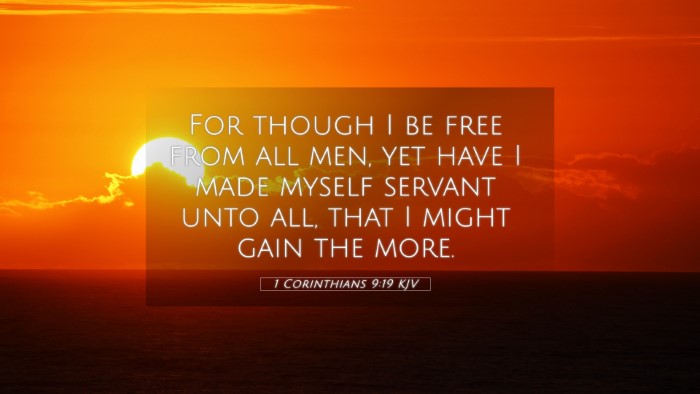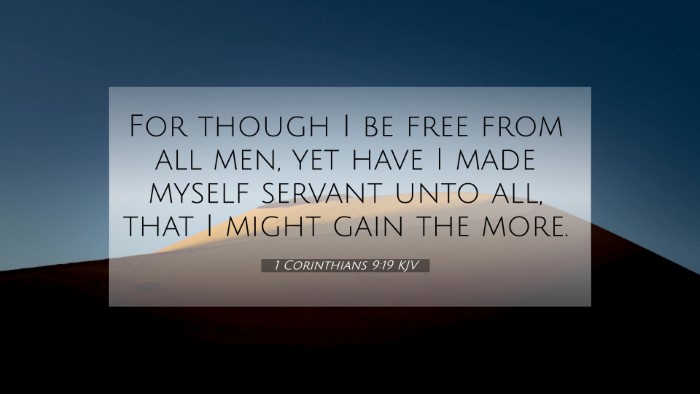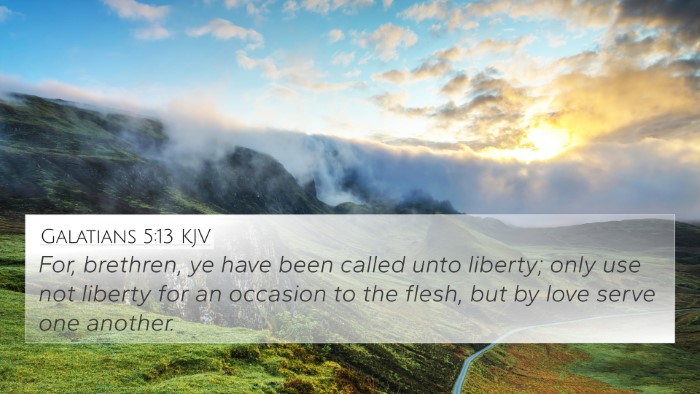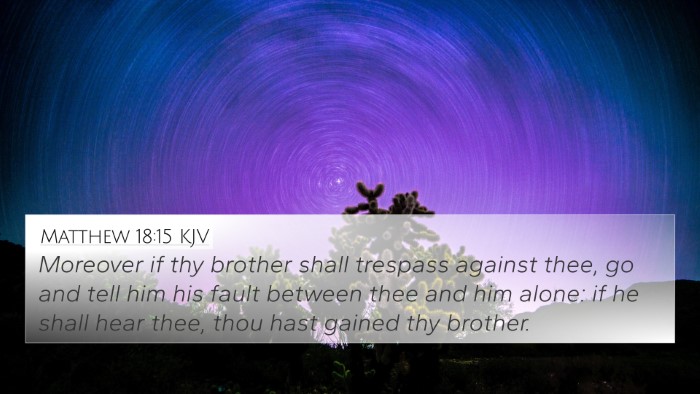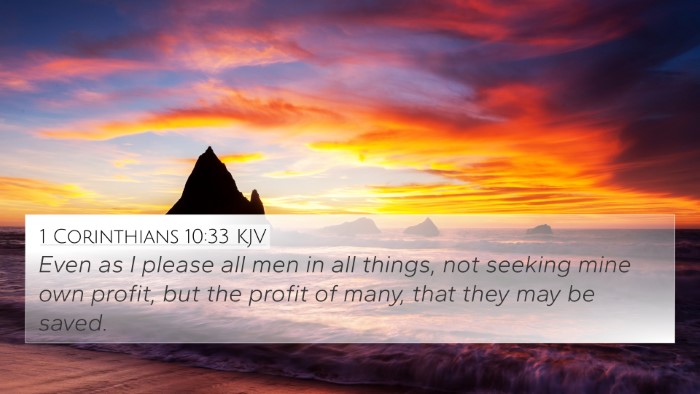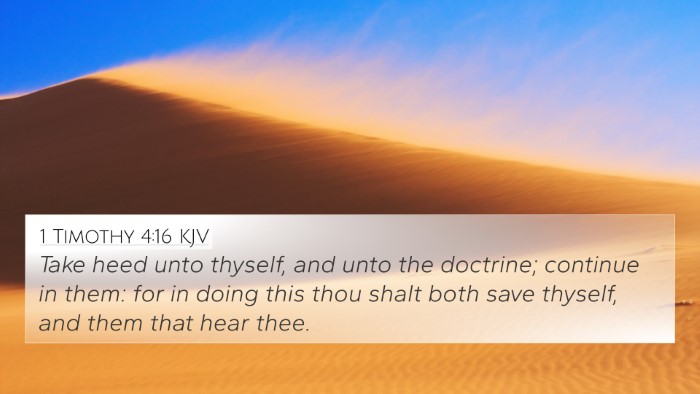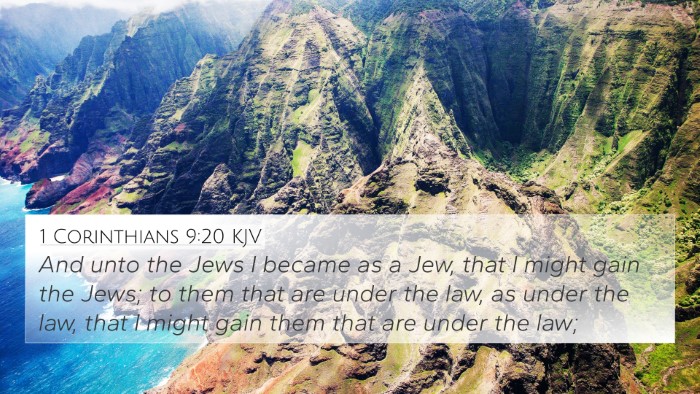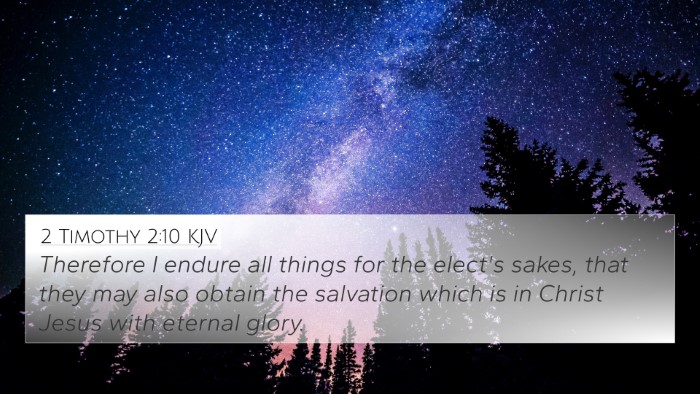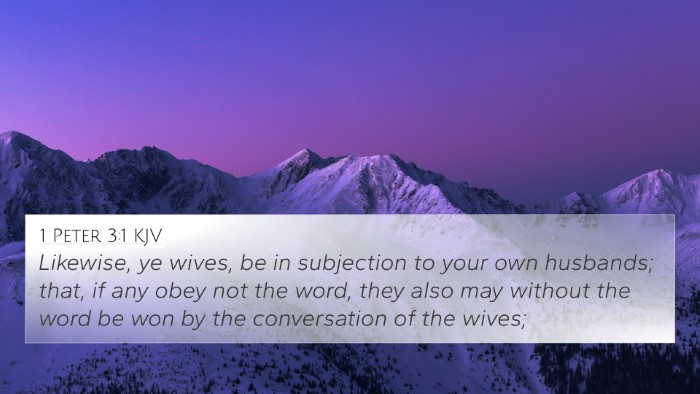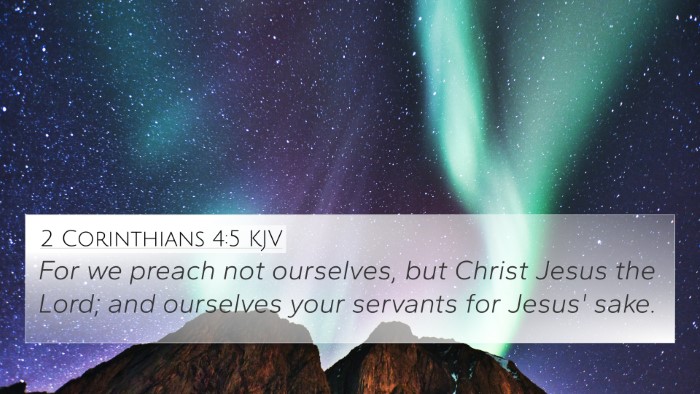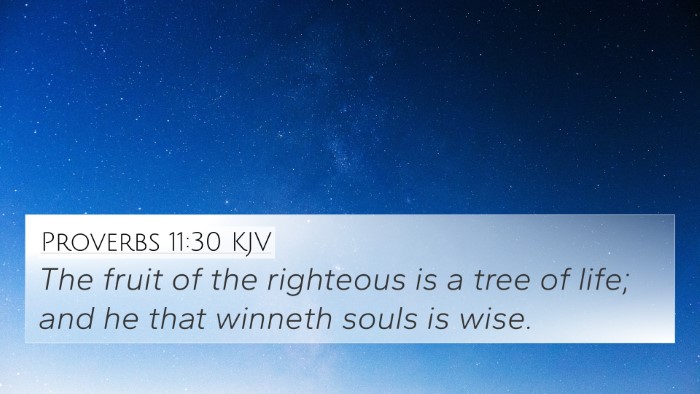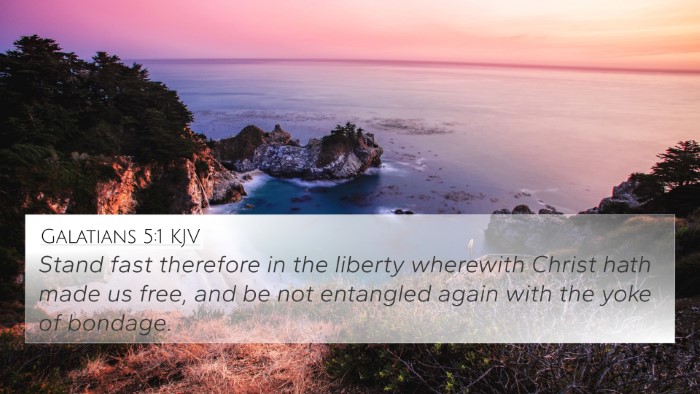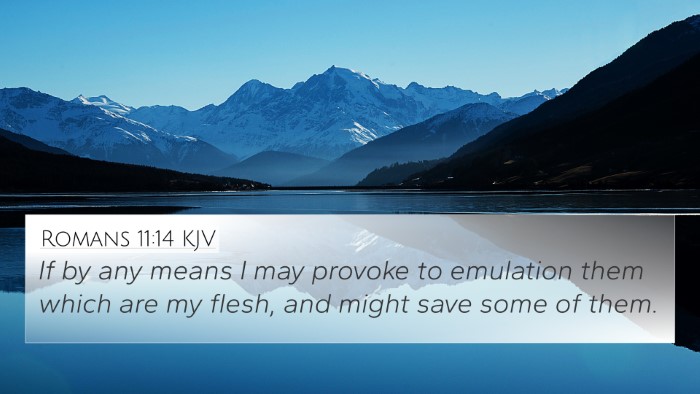Understanding 1 Corinthians 9:19
1 Corinthians 9:19 states, "For though I be free from all men, yet have I made myself servant unto all, that I might gain the more." This verse encapsulates Paul's mission and commitment to evangelism, demonstrating the principle of humility and adaptability in service to others.
Meaning and Interpretation
In this verse, Paul expresses his freedom in Christ but emphasizes that he willingly chooses to become a servant to all. This paradox highlights the transformative nature of the Gospel and the selfless attitude that Christians are called to embody.
-
Matthew Henry: Henry indicates that being free in Christ does not exclude the believer from serving others. Paul’s freedom is viewed as a means to serve rather than to rule over others.
-
Albert Barnes: Barnes explains that Paul’s approach was to adapt to different cultures and contexts to effectively communicate the Gospel. His willingness to become a servant shows the depth of his commitment to win souls.
-
Adam Clarke: Clarke notes that this servant attitude is central to Christian ministry. He elaborates on how Paul's actions provide a model for believers on how to effectively witness through love and humility.
Key Themes
The themes present in 1 Corinthians 9:19 include:
- Servanthood: The idea that true leadership in the Christian faith is marked by service to others.
- Adaptation: The ability to change one’s approach for the benefit of others while remaining true to the core message of the Gospel.
- Freedom in Christ: A reminder that despite being free from the law, Christians are called to live out that freedom in love through service.
Bible Cross-References
Here are several Bible verses that relate to 1 Corinthians 9:19, illustrating similar themes:
- Galatians 5:13: "For, brethren, ye have been called unto liberty; only use not liberty for an occasion to the flesh, but by love serve one another."
- Matthew 20:26-28: "But it shall not be so among you: but whosoever will be great among you, let him be your minister; And whosoever will be chief among you, let him be your servant."
- Philippians 2:7: "But made himself of no reputation, and took upon him the form of a servant, and was made in the likeness of men."
- Romans 1:14: "I am debtor both to the Greeks, and to the barbarians; both to the wise, and to the unwise."
- 1 Peter 5:2-3: "Feed the flock of God which is among you, taking the oversight thereof, not by constraint, but willingly; not for filthy lucre, but of a ready mind; Neither as being lords over God’s heritage, but being examples to the flock."
- 1 Thessalonians 2:7: "But we were gentle among you, even as a nurse cherisheth her children."
- Luke 22:27: "For whether is greater, he that sitteth at meat, or he that serveth? is not he that sitteth at meat? but I am among you as he that serveth."
Applications and Reflection
When reflecting on 1 Corinthians 9:19, consider how you can apply the principle of servanthood in your own life. Christians are not called to dominance but to service.
Such an attitude may manifest in various relationships—from family to workplace interactions—each providing opportunities to serve and love others genuinely.
Tools for Bible Cross-Referencing
To deepen your understanding of Biblical themes and verses like 1 Corinthians 9:19, consider utilizing these resources:
- Bible Concordance: A comprehensive reference tool that provides an alphabetical listing of words and phrases.
- Bible Cross-Reference Guide: Helpful for linking Bible verses that relate to each other.
- Cross-reference Bible Study: Methods to explore the interconnections between different verses.
- Bible Reference Resources: Various materials available for deeper spiritual study.
Concluding Thoughts
1 Corinthians 9:19 serves as a vital reminder of the freedom we have in Christ and the call to become servants to those around us. By understanding Paul’s example, we can foster a spirit of love and humility that is essential to the Christian faith.

